Quaker Online Communities
From Reddit to Discord, Twitter to Facebook… we take a tour of the places where Quakers (and the Quaker curious!) are congregating online.
Subscribe so you don’t miss an episode!
After you listen, tell us what you thought of this episode in the comments below!
Download the transcript and discussion questions.
Discussion Questions
- Sarah Allen says that in setting up Quaker.Social on Mastadon, she and David Coletta have had to think about rules and moderation for the server, specifically when Quakers have opposing beliefs. Do you hold Quaker-led online platforms to a particular standard? Is that reasonable or realistic?
- Renate Molvik has found that Quaker forums online tend to veer toward an American-centric perspective. How can U.S.-based Quakers be mindful of the global community they are part of?
Jon Watts
Hi, Georgia.
Georgia Sparling
Hey, Jon, how’s it going?
Jon Watts
Oh, it’s going pretty well. You know, I needed a long nap after the Nayler episode last week, but I’m happy with how it turned out.
Georgia Sparling
Yeah, I bet. We’re we’re definitely wrapping up this season with some ambitious episodes.
Jon Watts
Yeah, well, we’re ending on a strong note, we have just three more episodes, and then we’ll take a break and start planning Season Two.
Georgia Sparling
Yep, more about that soon. But today we’re doing one more episode about Quakers in the Internet age?
Jon Watts
Yeah, it’s been kind of our theme this season since the podcast is part of a larger vision for an innovative approach to Quaker spirituality and 21st century media. We wanted to spend some time in our first year exploring that. But you know, what are the burning questions for Friends as we navigate this new period of human history in which most people are perpetually online?
Georgia Sparling
Right. So we’ve already done an episode on Quaker’s relationship with the printing press in the 17th century and the parallels between that and communications technologies of our day. Then we had an episode on Quakers and Zoom and now social media?
Jon Watts
Yeah, well, well, kind of this week, we want to take you on a journey through cyberspace. You know, a tour of online Quaker communities to see where the life is on these new platforms. You know, where are the rich conversations happening? We’ll take you to the Quaker server on Discord, the Quaker subreddit and we’ll talk to Quakers about Twitter, both pre and post Elon Musk.
Georgia Sparling
Sounds like we’re about to go on a big journey.
Jon Watts
This episode has been a saga for me. It’s a saga of new passwords, weird interfaces. And also I nearly got myself kicked out of the Quakers Facebook group.
Georgia Sparling
You’re a Facebook troll.
Jon Watts
I wasn’t trolling.
Georgia Sparling
Sure.
Jon Watts
But yeah, well, we’ll get there. But first…
Various
Thee Quaker Podcast: Story, spirit sound.
Jon Watts
Thanks so much for tuning in. Just a quick note before we get started that if you listen to the end of this episode, you’ll hear a snippet of a phone call we made to max Carter on Monday. Max has traveled to Israel Palestine nearly every year for the past 50 years. And he offered some valuable context about what’s happening there. We are not a breaking news podcast. And of course, we hope to do a deep dive episode someday on this topic, but because it’s been on our minds and on our hearts, we wanted to say something. So I hope you’ll listen through to the end. Okay, onto the episode.
Jon Watts
So we’ll start our journey through online Quaker communities with Discord. If you’re not familiar with Discord, it’s like a group instant messaging platform. Anyway, I’m not the right person to explain it. I messaged a few Quaker Friends of mine who use Discord. And they all recommended that I reached out to Renate. So I signed into Discord and sent her a message. It turns out she lives in Norway, but thanks to technology like Discord, we were able to set up an interview.
Renate Molvik
My name is Renate Molvik. I live in Bergen, Norway. And I applied my local meeting here in Bergen, which is under the Norwegian meeting for France and then we’re on the low Scandinavian and then in the British Yearly Meeting. So we’re a very small community. Discord is pretty much the baby or mix between Skype or a different live chatting service, you just chat at you see it posted live and then combined with the old internet forums, but at least most of the ones who are my age or older or about, but it’s closed off.
Jon Watts
So you’ll need an invite or a direct link to get to the server but then everyone is welcome. Renate shared with me that there’s something easy about connecting in this format. You know, online chat just feels informal, intimate, you know kind of low stakes. And then there’s the anonymity.
Renate Molvik
You don’t have a name, you don’t have a profile. You don’t. You can share just as much or as little as you want to.
Jon Watts
So about halfway through our conversation, Renate mentioned that she was the owner and originator of the Quaker Discord server. I felt a little silly that I did know that but, of course, I had to ask her about it.
Renate Molvik
As I said, I have 150 Quakers in my country. Norway might be a small country, but it’s not that small. And I wanted to connect to other Quakers. So I asked on Reddit if there was a Quaker Discord. I got told that there wasn’t one. So I made one and accidentally created the de facto official Discord channel for Quakerism, quite by accident,
Jon Watts
I asked Renata about the international nature of the conversation. And she said it’s really interesting having a forum for Friends, regardless of nationality, and also that the conversation often veers toward the American perspective, which can be frustrating. So how do you join this Discord server?
Renate Molvik
Yeah, it’s pretty easy, you could download it on your phone, or you could just Google Discord and it will come up.
Jon Watts
And then you’ll need a link to get to this specific server. We’ll include that in our show notes. So for the sake of this story, I did join the Society of Friends server on Discord and I took a look around. At first it felt a little chaotic. It was like a giant group chat and I couldn’t really follow the threads but then I noticed the channels on the left side of the page, there are specific topics where you can sort of jump into ongoing discussions or start a new conversation about topics relating to faith and religion, Quaker values, meeting for worship, and you know, off topic discussions like cooking and entertainment. I tried posting some questions for users in the general channel, but I didn’t get much of a response. Moving on now to Twitter/X/Mastodon, etc. I’m going to hand it over to Georgia now.
Georgia Sparling
So a lot of Quakers, a lot of people in general have left Twitter with the arrival of Elon Musk. Even if you aren’t on the platform. It’s been hard to escape the news of Elon’s takeover: mass layoffs, blue checkmarks, the reinstatement of Donald Trump. But before all that, when tweets had a character limit of 140, there was some hot gos on Quaker Twitter.
Mackenzie Morgan
Yeah, just keeping up on what’s happening in other yearly meetings, sharing what’s going on sharing perspectives on what’s going on, which meetings are leaving their yearly meetings and why and what happened.
Georgia Sparling
That’s Mackenzie Morgan, a member of our board here at Thee Quaker, she was once very active on Twitter. She even had a search set up so that she would see all tweets related to Quakerism. she interacted with tons of people who were genuinely interested in learning more about the faith.
Mackenzie Morgan
Putting myself out there as like the extroverted person who will answer questions, and also the, you know, pedantic nerd who will correct people. And then this started resulting in like, sometimes other Quakers who were not comfortable with explaining things or answering things being like go ask Mackenzie.
Georgia Sparling
McKinsey, a software engineer, estimates that she had about 2500 followers on Twitter.
Mackenzie Morgan
I left because because Elon Musk was when he decided to fire a huge portion of Twitter employees that I, as a software engineer and someone who has worked in the security side of things was like, ohhhh, this is gonna go bad.
Georgia Sparling
Mackenzie metaphorically packed up her Twitter and move to a platform where many others have decamped, Mastodon. Although it first launched in 2016. Macedon has gained traction in the days, weeks, and months following Elon purchase of Twitter. It’s a decentralized platform. There are no advertisements and users join something called an instance, which generally speaking is kind of a thematic server. It’s a little confusing, but just know that each server has its own set of rules. But users aren’t limited to the server that they signed up on. And there are servers devoted to just about everything, including one called Quaker social, established by longtime friends, David colletta and Sarah Allen.
David Coletta
I’m David Coletta. I live in Boston.
Sarah Allen
My name is Sara Allen. I live in San Francisco.
Georgia Sparling
David and Sarah both worked in the tech industry, and both of them have effectively left Twitter.
David Coletta
I think it’s really unfortunate that Quakers ended up having to use platforms like those that are intended mostly to make money through advertising and make it somewhere between extremely difficult and impossible for the people using them for community to really own their content to have any kind of control over who sees it and who doesn’t. And to kind of manage it in a faithful way. I understand why Quakers are there, a lot of it has to do with the fact that these platforms are super easy to use and accessible by many people. And as soon as you go off the beaten path, it’s very, very hard to make the technology work well. And it really requires someone who’s dedicated to keeping the servers running. And that’s not really practical for Quakers, or most people in general to do for themselves. It’s just a really unfortunate place that we’re in right now in history. The tools are terrible, the tools are broken, they’re all broken. They’re not designed for what we want to use them for. And so we’re having to make do.
Georgia Sparling
David says that he joined Twitter the year it started. But he doesn’t think it’s a good place to develop a Quaker community, or really any community.
David Coletta
What you really can have is one to one connections, you can meet people and you can text with them. But it’s really hard on Twitter, and it’s only maybe a little easier on Facebook, to have like many to many connections — to have, like an identified group of people who are all interacting together. And again, that has to do partly with not being able to control who sees what, it’s all up to the algorithm.
Georgia Sparling
Sarah disagrees. But she was also disenchanted with the Elon Musk era of Twitter.
Sarah Allen
I nudged David, because I was like, if David set up an instance, and I have somebody to ask, and I could help him make the rules. And then I would know all the things and I could learn about it by doing it.
Georgia Sparling
On Twitter, Sarah’s persona was that of a woman in tech. And she didn’t mention her Quaker faith at all. But she was interested in Macedon as a place where she could develop an online Quaker community.
Sarah Allen
This was my experiment, and what would it be like to integrate my beliefs with this technology, not just me, but a server that is explicitly Quaker, where we’re saying we are attempting to conduct ourselves as Quakers on this server. That shared context, I think creates an opportunity.
Georgia Sparling
Last December, Quaker social launched on Macedon, Quaker socials, rules are thus:
David Coletta
Be thoughtful, be anti racist, anti misogynistic, and anti homo and transphobic, be authentic, be interesting and interested, be safe. And the one that’s not like the others, don’t violate anyone’s copyright.
Georgia Sparling
But what happens when a Quaker doesn’t agree with these rules?
Sarah Allen
I feel more of a sense of urgency of like, what I’d like to have, and we don’t have the mechanism for right now, which I’m we’re still discovering is. Well, if they were, like I thought about the “don’t be homophobic,” when we have Friends who believe that marriage between a man and woman is like a sacred thing, and anything different from that in a relationship is not in keeping with their beliefs as Quakers and I completely disagree with that yet I also believe in continuing revelation. And I believe that the way to resolve this is…it’s a complex issue. What if we had someone from that perspective, join our server and say things that someone interpreted as homophobic and they felt was true to their Quaker beliefs? And I think the way that as Quakers we have a tradition of approaching that with a clearness committee and a discernment, and it’s a live worshipful practice. We don’t have the mechanism to do that, nor the precedent to establish that.
David Coletta
I think it’s kind of obvious that it’s an experiment where we don’t really know what the purpose is yet. And part of it is putting it out there and discovering it. But that said, one of the things that I worry about a lot, is that Quakers aren’t really putting themselves out there very much in the places where younger people are likely to find us. And obviously, the podcast is helpful in changing that. But social media is another big place where younger people are and Quakers well, sort of are but could be more. So I’m excited about the Mastadon server also as a way for people whose first thought is to look on the internet to find Quakers.
Mackenzie Morgan
I mean, I definitely think they’re important, especially because of how small so many meetings are.
Georgia Sparling
That’s Mackenzie again. Although she’s not on the Quaker Social server, she does interact with other Quakers on Macedon.
Mackenzie Morgan
There’s lots of meetings that they only ever were 20 people, 40 people, maybe even only eight people, and when your meeting is that size, and especially if you are one of the people who is under the age of 60, and in your meeting, that might mean you’re the only person under 60, that sort of thing. It can be really nice to have other Quakers your age to interact with, too.
Georgia Sparling
Sarah also views Mastodon as a sort of extension for meeting for worship.
The analogy that I would think of is it’s like a Quaker Meeting. Right after worship, you have like fellowship where people are chit chatting about things and sometimes it’s deep things, you know, sometimes it’s Jonah talking about sheep on his farm. You know, it’s somebody talking about their something their funny thing their kid did, or posting a, you know, a photo from their walk.
Georgia Sparling
For Quakers who are still on Twitter, some of those same ideas apply. Jill Segger is a writer in the UK whose Twitter handle is appropriately Quakerpen, and she encourages other Quakers to participate in social media.
Jill Segger
Personally, I valued hugely for the wide variety of people with whom it brings me in contact. And I’ve made a lot of real life friendships on Twitter. I’ve learned a lot from people whose lives and lifestyles are very different from mine. And people, who although I’ve never met them, I would consider them Friends and maybe confidants as well.
Georgia Sparling
Why do Quakers need to be on Twitter? Or do they need to be on Twitter?
Jill Segger
Publishers of truth? I think it’s just good to communicate with people. I don’t like to just stick with the same sort of people all the time. If you surround yourself entirely by slightly left of center, slightly cerebral spiritual people, although you will gravitate to those people. If you only really communicate with those sorts of people, you’re missing an awful lot of humanity out.
Georgia Sparling
Why is it even important for Quakers to be on Twitter or social media? Like what is their place?
Jill Segger
Do we have a place it’s our place not everywhere, where there other human beings?
Jon Watts
After the break, we’ll hear from users of the R/ Quakers subreddit and how I accidentally started some Facebook drama.
Georgia Sparling
Hi, it’s Georgia here popping in to let you know that we’re nearing the end of our first season of the podcast. By the time November rolls around. We’ll have published 20 episodes since our launch in May. And we’ve worked hard to tell stories of spiritual courage and creative and challenging and uplifting ways, from stories about daring Quaker abolitionist to a mystery writer who incorporates her Quaker faith into her books, to a sermon inspired by social justice and rock music.
Georgia Sparling
And we’re so thankful that so many of you have listened. The episodes have already been downloaded and streamed more than 30,000 times. And we’ve gotten so many engaged listeners from all over the world, folks who comment on our website and social media and send us emails. And we really want to keep that momentum going. So we’re gonna take a break, not to go to Cabo, but to work on our next season.
Georgia Sparling
Every episode takes many, many, many hours of researching, interviewing, writing, editing, reviewing, mixing, mastering, sometimes we’re going on location to do our reporting, sometimes we’re interviewing five or six or more people just for one 30-minute episode. And we really enjoy that, but it does take a lot of time. So we’re going to dedicate the next few months to gathering fresh stories for you, and then we’ll be back in 2024 with brand new episodes.
Georgia Sparling
In the meantime, we would love your support, and you can do that in a few ways. One, you can become a patron. You’re gonna want to do this soon if you’ve been thinking about it because we have a special something heading to our monthly donors at the end of the season. monthly donations can be whatever you can afford, and they go a long way to making this project sustainable. And in case you’re wondering, Thee Quaker Project is a registered nonprofit. That was a question that we received recently, so you can head over to TheeQuaker.org to learn more about us and find out how you can become a donor. You can also click the link to that site in the show notes.
Georgia Sparling
Okay, a second way that you can support us is by telling five friends about the podcast. You can shoot them an email or a text with a link to your favorite episode or tag a friend and one of our posts on social media. Word of mouth is huge for podcasts. And the third way that you can support us is by sharing a review and telling people what you think. You can leave a comment on Apple podcasts. And you can comment on individual episodes on Spotify and YouTube. It really helps people decide if they want to listen as well. Thank you all for listening and for supporting this work. Okay, back to the show.
Jon Watts
So I want to take a moment to address the elephant in the room, Facebook. When Georgia and I had the idea for this episode, I had this grandiose plan of creating a segment that tells the mixed history of Quakers on Facebook, and I was especially interested in the Quaker’s Facebook group. I know that this group has gone through a lot of changes, but it still seems pretty active. So I messaged the moderators and one by one, they turned me down for an interview. They were mostly friendly, but didn’t want to talk on the record. So I thought I go to the source, I drafted a post in the group with a simple question. Why are you in this Facebook group, the post was getting some pretty good and some pretty funny replies. And then to my surprise, it got taken down by the group moderators. I was surprised because in order to get published, my post had to be approved by those same moderators.
Jon Watts
On top of that, I also got a slap on the wrist, a notification that I had received a warning. After some digging, I saw that the rule I had purportedly violated was called cross posting, which is about promoting your commercial project. You know, when my post first went up, I had received a direct message from a member of the group that said something like, “don’t bother” and shared a negative experience of what they felt like was a misuse of the moderator tools. It was a little weird, but after this experience made a little more sense. So anyway, I came out of the experience feeling confused and a little disheartened. And, you know, after weeks of trying, I decided to leave the story there.
Jon Watts
Facebook in 2023 is weird, and it’s confusing. I’m not talking about like navigating the app itself, but like how to plug into it as a community. There are some Quaker pages and groups there. I often find that they are full of spam or trolling. Or on the other side of the coin, they have inconsistent and sometimes overbearing moderators. I don’t know what to do about it. And like most people in my generation, I’ve mostly given up on it. And I have a little grief about that. I remember when Facebook was a rich set of conversations and personal reflections from people who I cared about and trusted. It was certainly formative in my spiritual development. But we’re gonna leave it there and move on to our final online Quaker community. The R/Quakers subreddit.
Keith B
Hello, Friends, my name is Keith. I live in Gloucester. In the UK. I’ve been on Reddit nearly as long as it has existed. It’s where a bunch of conversations about my professional and personal interests have taken place for a long time. So why not my religious ones, too? Over the last couple of years, I felt a growing sense that I should be paying attention to what we might broadly call outreach. And that prompted me to look for the places that people go when they want to know more about the Society of Friends.
Jon Watts
So that’s Reddit user Keith B, one of about 22 Redditors who responded to my question on the R/Quakers subreddit, I asked users to share why they joined, what Reddit is good for, and whether they feel like the Quaker subreddit has played a role in their spiritual journey. All of the folks you’ll hear in this segment were kind enough to send us a recording of themselves reading their comments.
Keith B
Reddit is a website where anyone can post content and anyone else can post a reply to it and reply to that reply. R/Quakers is a part of Reddit where the content and the replies and the replies to those and so on are at least one of for, by, or about Quakers These Quakers could be anywhere in the world, which has open Internet access. R/Quakers is also a loose, rolling, ever changing ad hoc community of Quakers and allied folks and a semi permanent record of the shared stream of consciousness of that community.
DamnYankee89
I came to R/Quakers after reading about the American Friends Service Committee. It was during the pandemic and my dad asked me to donate to them for his birthday. I fell down a bit of an AFSC rabbit hole, which then led me to a Quaker spirituality rabbit hole. I read about what Quakers believe. And it resonated so deeply with me that I had to learn more. There aren’t many meetings in my area, and everything was shut down anyway, so I wound up here. I’ve been a Redditor for a long time.
Jon Watts
So that’s Reddit user DamnYankee 89, who asked me to stick with just their user name. This is typical of Reddit. Most all users are anonymous. It’s actually pretty special that these folks were willing to record their comments for us. That’s not something that would happen on any other subreddit, I don’t think.
John Swindle
This is John Swindle, in Honolulu, Hawaii. I’m a member of Honolulu Friends Meeting and also of a Buddhist temple. I joined the subreddit because I’m Quaker and had already fallen into Reddit. Reddit rewards users with brownie points in heaven. It must be in heaven because there are of no earthly use for saying things that meet with others approval.
Jon Watts
So John is referring here to one of Reddits most notable features. When you see a post or a comment that you like, you can hit a button next to it called an up vote. I mean, you can also give it a down vote if you didn’t like it. Posts and comments are then ranked by how popular they are with other users of that particular subreddit. To further over explain John’s joke. Users are then rewarded points that Reddit calls karma for getting a lot of upvotes. But when I looked into it, karma doesn’t seem to do much. Quoting from the R/help subreddit, “karma has no function. It’s just shiny internet points.” So that’s that piece. But how does this setup up votes and down votes impact the quality of the conversation?
Keith B
The discussions here for mostly in two broad groups. One is newcomers asking about the faith, how to find a meeting. The other is established Friends doing a bit of informal threshing.
John Swindle
What I’ve noticed about interactions in R/Quakers says that they’re more quickly than in some other Reddit discussions. People are stopping and thinking and being kind to one another.
DamnYankee89
The discussion on this sub varies, it’s generally very encouraging. People often come to ask about meeting etiquette. Sometimes there are heated disagreements, but I think that it’s evidence of the number of different types of Quakers out there and the strength of our convictions.
Keith B
Discussions here are mostly civil, and people hold pretty well. The idea that as James Baldwin said, “We can disagree and still love one another. Unless your disagreement is rooted in denial of my right to exist.” Well, every now and again, one of those old schisms amongst American Quakers raises its ugly, pointless head here. And someone will deny that someone else even is a Quaker because their tradition harks back to someone many generations dead that the first person thinks they would have disagreed with at the time. It makes me very sad, but happily, it is quite rare.
Jon Watts
So finally, there was this one comment that stood out to me and I want to play you the whole thing. It’s in Spanish. So we’ll pause to translate. This comment is from a user named Lambs Warrior. I didn’t hear back when I tried to message Lambs Warrior so I reached out to a friend in Monteverde to read it for us. Georgia will provide the translation
Lambs Warrior
¡Ey! u/jonwatts, soy un Amigo aislado en Centroamérica y desde 2018 comencé a intentar contactar con cuáqueros no programados en Estados Unidos sin mucho éxito.
Georgia Sparling
Hey, Jon Watts. I am an isolated friend in Central America. And since 2018, I have been trying to contact unprogrammed Quakers in the United States without much success,
Lambs Warrior
Pero en 2020 con la explosión de Zoom esto me permitió participar activamente en la amplia comunidad cuáquera.
Georgia Sparling
But in 2020 with the explosion of Zoom, I was able to actively participate in the wider Quaker community.
Lambs Warrior
Para mi toda plataforma en línea que usemos (ya sea en Reddit, Youtube, Facebook, Twitter, o Mastodon) puede ser una extensión de nuestras conunidades y una forma de fortalecer lazos más allá de fronteras u otras barreras que existen para los buscadores espirituales.
Georgia Sparling
For me any online platform that we use, whether on Reddit, YouTube, Facebook, Twitter, or Mastodon can be an extension of our communities and a way to strengthen ties beyond borders or other barriers that exist for spiritual seekers.
Lambs Warrior
Algunos desestiman las interacciones que tenemos en línea, como que si no son reales o no tienen importancia, pero son tan reales como una llamada por teléfono o una epístola.
Georgia Sparling
Some dismiss the interactions we have online as not real or unimportant, but they are as real as a phone call or a letter.
Lambs Warrior
Y si decimos que dejamos hablar a nuestra fe, porque no habríamos de usar fielmente cada plataforma como una oportunidad para extender el reino de Dios en la tierra y en las nubes de la virtualidad.
Georgia Sparling
And if we say that we let our faith speak why wouldn’t we faithfully use each platform as an opportunity to extend the kingdom of God on earth and in the virtual clouds?
Georgia Sparling
Thank you for listening and thank you to our guests: Renate Molvik, Mackenzie Morgan, David Coletta, Sarah Allen, Jill Segger and everyone who responded on Reddit. You can find links to the Quaker communities that we mentioned on Discord, Reddit, and Mastodon as well as discussion questions and a transcript of this episode at QuakerPodcast.com.
Georgia Sparling
This episode was produced and edited by Jon Watts and, me, Georgia Sparling. Jon also composes the music for each episode. Alejandro Rodriguez Zamora was our voice actor, with a special thanks to Ran Smith for connecting us with Alejandro.
Georgia Sparling
Thee Quaker podcast is part of Thee Quaker Project, a Quaker media organization with a focus on lifting up voices of spiritual courage and giving Quakers a platform in 21st Century Media. If you want to give to our work, we would so appreciate it. Please consider becoming a monthly supporter. You can learn more about how to join our giving team at TheeQuaker.org. That’s Theequaker.org. Every contribution expands our capacity to tell Quaker stories in a fresh way.
Georgia Sparling
Before you go, we have one last segment. Recently, Jon spoke with our friend Max Carter, who has built friendships and partnerships in Israel and Palestine for many decades. With the escalating violence in that region. We wanted to get a Quaker perspective.
Max Carter
Hey, Jon.
Jon Watts
Good morning.
Various
Morning. How are you?
Jon Watts
Not too bad? How are you doing?
Max Carter
Well? I’ve been better. Thanks. Good. Start to get over there.
Jon Watts
Yeah, I want to I want to ask you about it. Yeah, well, first, I want to say thank you so much for your participation in a recent episode on Nayler.
Max Carter
Okay, that was good. You guys do such a great job of putting that stuff together.
Jon Watts
Oh, thank you. So. So this week’s episode is going to be about Quaker online communities, which is, you know, sort of unrelated. We call it evergreen content, right. Something that’s unrelated to the current events. But I you know, I did want to I was thinking about how to do a brief segment on some give some Quaker perspective on Israel Palestine because there’s lots of listeners who are probably curious about that. And, you know, I thought of you of course, because you have been traveling to Palestine for how many years now?
Max Carter
Oh, just since 1970.
Jon Watts
Wow. Yeah. And and of course, when I was a student at Guilford, you were taking students there every year and I believe you had a trip canceled because of the recent conflict.
Max Carter
Indeed. We were supposed to be a week from today picking olives at a Palestinian farm outside of Bethlehem in order to join with other international volunteers. It’s a presence that helps keep them safe from settler attack and sadly, we can’t do it. Yeah. This talking to one of our Palestinian students who graduated from the Ramallah Friends School last evening. She stopped by she hasn’t been home for a year and a half and and finally booked flights to go home for December at Winter Break. She has had to cancel because her family is too worried about what’s going to happen and so it’s best that you not come. So you know it’s just a tragedy all the way around
Jon Watts
Yeah, so I wonder for our listeners if you could give us a sort of a brief rundown of you know your your trips to Ramallah and other parts of Palestine. Why you initially felt called to go there and what’s been sort of your perspective as a, as a Quaker called to be active in the region.
Max Carter
All right, well, I’m not the first Quaker to step foot over there. The first Quakers in Palestine, and it was called Palestine at the time, in 1868, where Eli and Sybil Jones. Quakers from Maine who were the aunt and uncle of Rufus Jones, who you’ll probably have a segment on some time. And they established the School for Girls. So they’ve been there through about five different occupations. So Quakers have observed the context of the unfolding tragedy for more than a century for more than 150 years. And that’s important for people to understand. There’s an expression that has a prominent display in the classroom at Earlham School of Religion. Context is everything. And that’s important to understand, you know, in Biblical Studies, messing up understanding context just results in bad sermons and bad theology, but in not understanding context, and Israel Palestine results in the deaths of 1000s of people. Personally, I went over there in 1970, as a Vietnam era conscious objector. That was my alternative service, I had the good foresight to be born in the county in Indiana chock full of Amish Quakers, Mennonites and brethren. So my draft board just said, go away and do something for two years. And I went over to Ramallah to do alternative service because I wanted to do my alternative service in a war zone. Quaker pacifism, Quaker conscious objection, is not about just avoiding war. It’s about how do we live our lives in such a way that we help remove the occasion for war? How do we address the seeds of war?
Jon Watts
Right? So wow, you’ve been visiting that region for over 50 years now. I’m sure you’ve got enough stories to be a podcast in its own right. But I wonder if there’s just one that maybe you could lift up for us that might help give some context. And it’s probably too much to ask, but maybe a glimmer of hope, you know, in a dark time.
Max Carter
One of the most poignant experiences is visiting the farm where we were going to be picking olives a week from today. This is the Nasser Farm. They own the land, they actually have title to this land, which is unusual for descendents of nomads and shepherds. And they’ve lived on this land for now for generations. A hundred acres just outside of Bethlehem. But they are surrounded by four Israeli settlements in Area C, which is the area resulting from the Oslo Peace Accords, that gives Israel total control. And Israel doesn’t want them on that land. They want that land for these settlements, and for the Jewish Etzion block around Jerusalem.
Max Carter
And they are Christians. Yeah, they are Palestinian Christians. Not only that they’re Lutherans. How many people knew there are Lutherans in Palesinte? But they are committed to a non-violent response to those who want their land. On a stone at the entrance to their farm — and this is after physical attacks on them personally and on their land. Thousands of their trees have been cut vineyards burned. Their apricot trees have bulldozed two weeks before harvest. You name it and they’ve experienced it over the last decades. On this stone at the entrance to their farm in several languages: “We refuse to be enemies.” That hits you hard when you you go and you experience the trauma, but in their Christian commitment to non violence, you know they are in the words of Arabic. Samid — that’s steadfast
Georgia Sparling
If you would like to learn more Max suggested a list of resources, and we will include that on our episode page at QuakerPodcast.com. Again, thank you for listening and we will be back next week with a new episode.
Recorded and edited by and Jon Watts and Georgia Sparling
Original music and sound design by Jon Watts (Listen to more of Jon’s music here.)
Supported by listeners like you (thank you!!)
Referenced in this episode:
- Online Quaker Communities
- Follow Jill Segger on Twitter @quakerpen
Resources on Israel and Palestine
- United Nations Relief and Works Agency
- Doctors Without Borders
- United Palestinian Appeal
- Searching for Peace Middle East (Documentary)
- When the Rain Returns: Toward Justice and Reconciliation in Palestine and Israel by International Quaker Working Party on Israel and Palestine
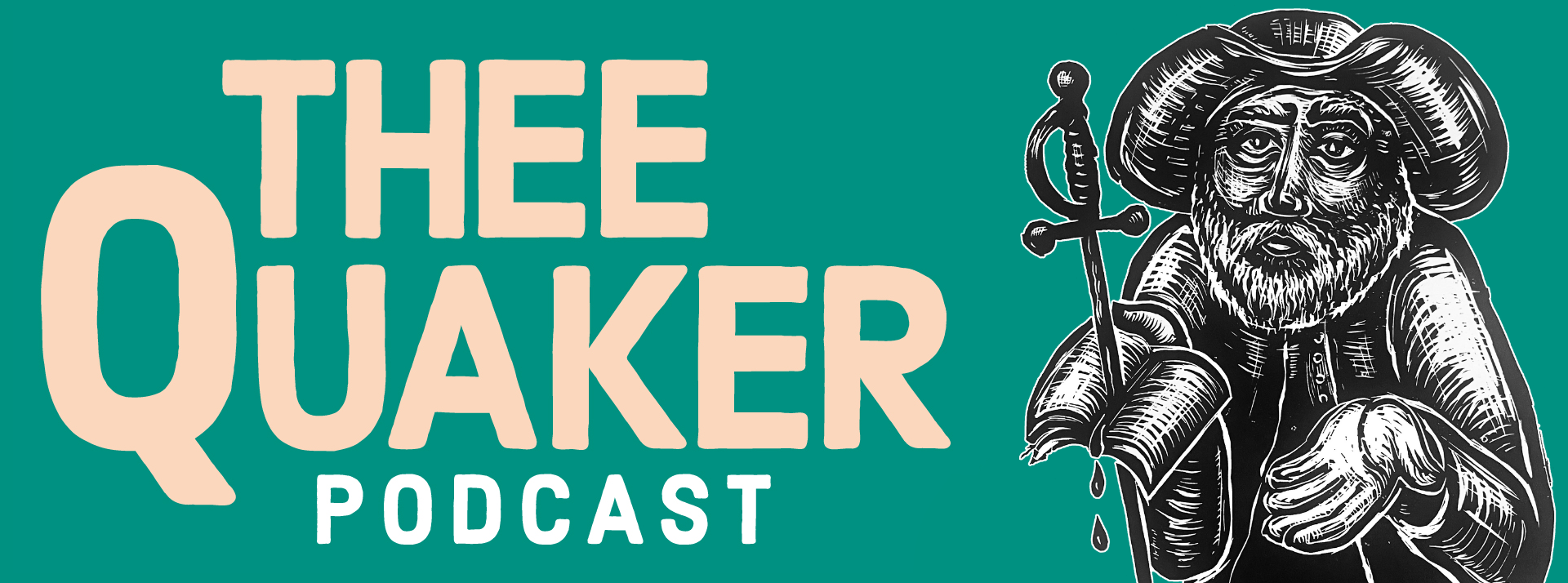

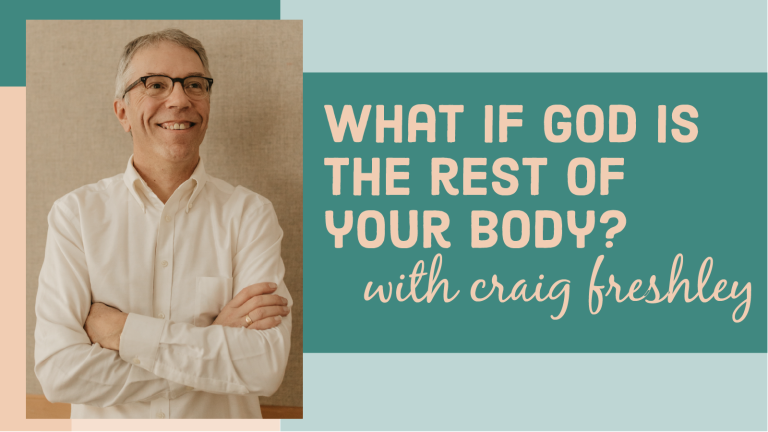
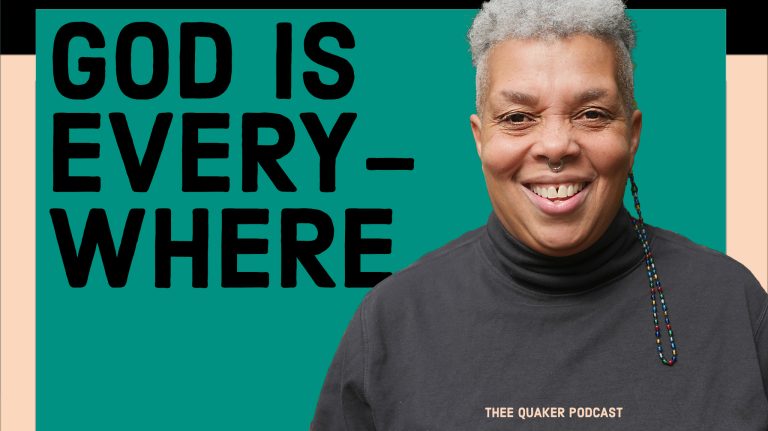
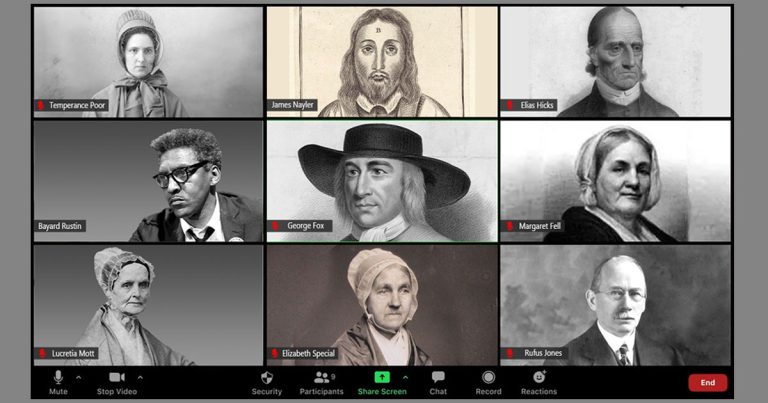
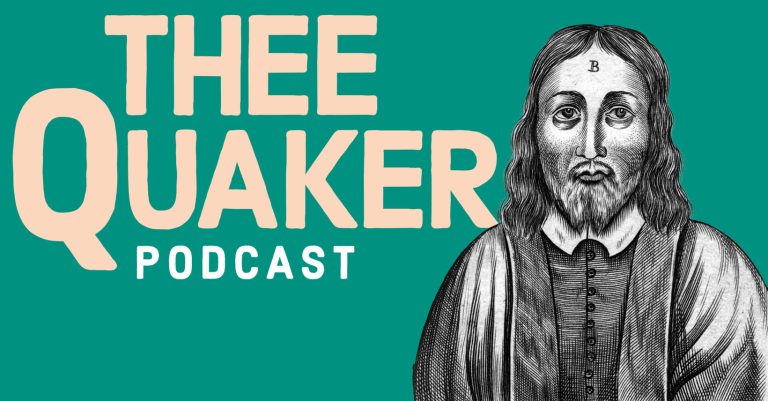
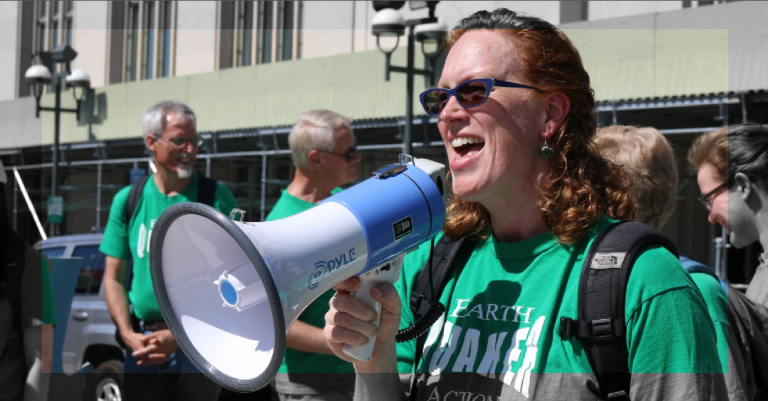
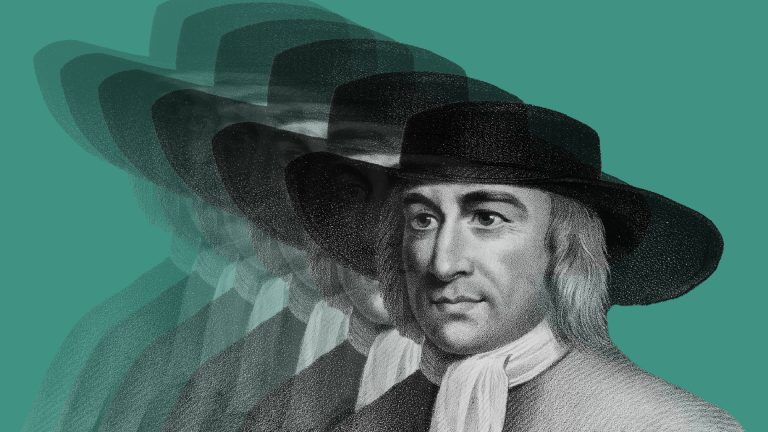
This is of interest to me .
I belong to Lancaster PA Meeting.. I don’t get much chance to visit with members of other Meetings, not even in Caln Quarter, nor Philadelphia Yearly Meeting.
While I come from a very long and old line of Quakers, I’ve never knew much about the meetings or the communities. This site has been very helpful and informative. Thanks you all!
Lapsed Friend…a bit thorny about returning to Meeting for Worship.
….yet it was Meeting for Worship that I desire like a moth to a flame ….
Sounds like a good idea. Please register me.
Hi Margaret, would you like to be registered for our newsletter?
I am receiving this information from our Quaker Bulletin. I would like to sign up for it to be sent to my email.
Very moving to hear Max sharing about the farm he planned to visit. Thanks for including him. Hope you will be able to do a whole episode sometime about this situation. Good work!
I tried to get to the discord server, but it says that the link is invalid. Would it be possible for someone to share a fresh link? Thank you!
Hi Casey — I just updated the link. This one should work long-term: https://discord.gg/sY7nR5BD6k.